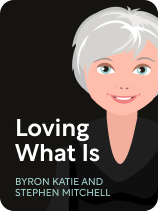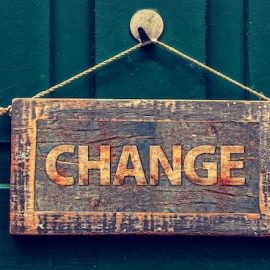

This article is an excerpt from the Shortform book guide to "Loving What Is" by Byron Katie. Shortform has the world's best summaries and analyses of books you should be reading.
Like this article? Sign up for a free trial here.
Are you looking for Loving What Is quotes by Byron Katie? What are some of the most noteworthy passages worth revisiting?
In Loving What Is, Byron Katie says that the source of our suffering is found not in our experiences, but in our thoughts about those experiences. To let go of suffering, we should practice “loving what is” because there is no such thing as a bad experience: Everything that happens is good.
Here’s a selection of passages highlighting some of her ideas.
Loving What Is: Four Questions That Can Change Your Life
When we feel emotional pain or discomfort, we often blame our experiences—the people and situations in our lives—for not being exactly how we want them to be. Since life rarely plays out exactly as we want, this means we always have reasons to feel bad.
In Loving What Is, best-selling author and spiritual teacher Byron Katie argues that you don’t have to resign yourself to living in a constant state of misery. She explains that life experiences don’t cause emotional pain, only resistant thoughts that judge experiences as somehow wrong or unwanted do. Therefore, releasing resistant thoughts allows you to accept and feel at peace with life, no matter what happens.
Here’s a selection of Byron Katie’s quotes from Loving What Is:
“You move totally away from reality when you believe that there is a legitimate reason to suffer.”
Katie argues that your thoughts keep you mired in a world of possibilities that don’t exist: Instead of focusing your mind on what has happened or is happening, they focus your mind on what should have happened, could have happened, or might happen.
These thoughts keep you locked in an imaginary narrative that has nothing to do with reality. As a result, they cloud your judgment and prevent you from clearly perceiving, interpreting, and responding to the situation as it is.
According to Katie, the more you let your internal narrative blind you, the more you move away from reality. This causes you to engage in emotional reactions and behaviors that exacerbate your negative feelings and prolong your emotional pain.
“Nothing external can disturb us. We suffer only when we want things to be different from what they are.”
According to Katie, nothing external can make us suffer. Rather, all our negative emotions spring from resistant thoughts that judge our experiences as wrong or unwanted.
These thoughts distort the truth of reality (that it is inherently perfect) by preventing us from seeing the good in our experiences. The more resistant thoughts we think about our experiences, the more we fail to see what’s good about them. As a result, we easily find even more reasons to feel unhappy about our experiences—and this is why we suffer.
Examples of resistant thoughts include blaming others for not behaving in ways that we believe they should, complaining about things because we think they should be different, and worrying about all of the bad things that might happen.

———End of Preview———
Like what you just read? Read the rest of the world's best book summary and analysis of Byron Katie's "Loving What Is" at Shortform.
Here's what you'll find in our full Loving What Is summary:
- How to investigate resistant thoughts that trigger emotional discomfort
- A step-by-step process to release resistant thoughts
- How to accept and feel at peace with yourself and others






